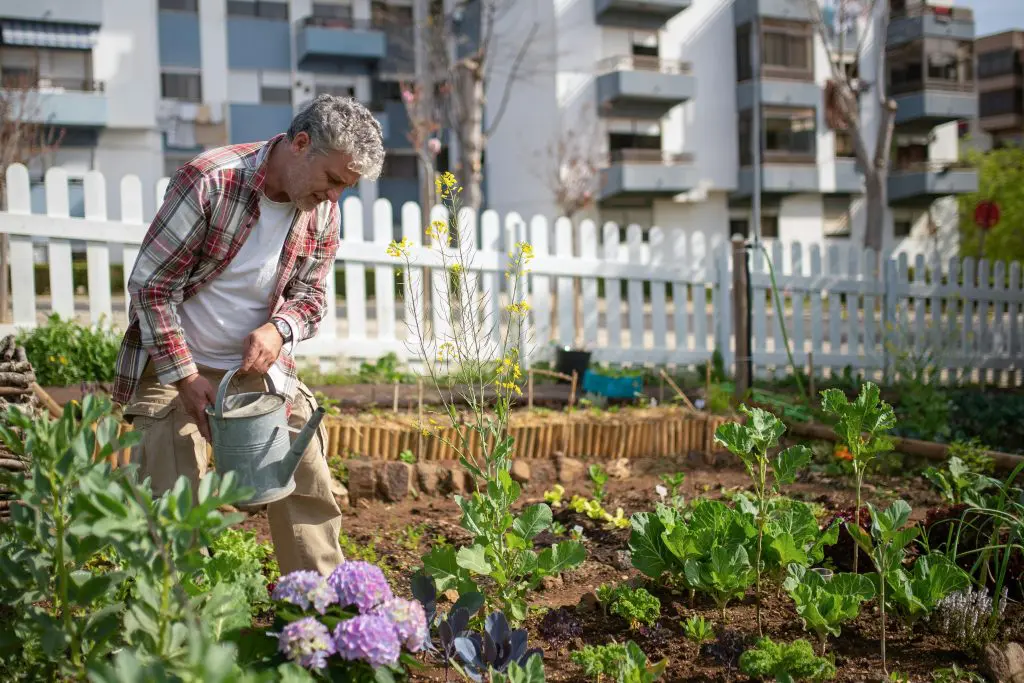
As we face increasing environmental challenges globally, the need for sustainable practices has never been more urgent. In Ireland, a growing number of individuals and communities are turning to permaculture as a solution. But what exactly is permaculture? In this article, we delve into the principles of permaculture and its significant role in shaping a […]
As we face increasing environmental challenges globally, the need for sustainable practices has never been more urgent. In Ireland, a growing number of individuals and communities are turning to permaculture as a solution. But what exactly is permaculture? In this article, we delve into the principles of permaculture and its significant role in shaping a sustainable future for Ireland.
Permaculture is a design system that seeks to create sustainable and self-sufficient agricultural ecosystems. The term, coined by Bill Mollison and David Holmgren in the 1970s, combines “permanent” and “agriculture,” reflecting its goal of creating enduring agricultural practices that work in harmony with nature. Rather than relying on external inputs, permaculture fosters a holistic approach that considers the environment, community, and economy.
Permaculture is anchored in several core principles that guide its practice:
In recent years, Ireland has witnessed a notable shift towards sustainable agricultural practices. With the increasing awareness of climate change, many farmers and communities are exploring permaculture as a viable solution to traditional agricultural methods. The need for food security, loss of biodiversity, and soil degradation are pressing issues that permaculture seeks to address.
Numerous community initiatives focused on permaculture have emerged across Ireland. Educational workshops, community gardens, and permaculture design courses are gaining momentum. Organisations such as All-Ireland Permaculture Association play a pivotal role in promoting the principles of permaculture throughout the country. These initiatives not only educate individuals about sustainable practices but also empower communities to create their own food systems, fostering resilience and self-sufficiency.
Find out some ongoing Permaculture projects that are happening across the island at permaculture.ie.
The main benefits of permaculture for Ireland includes:
One of the significant benefits of permaculture is its positive environmental impact. By prioritising biodiversity and soil health, permaculture practices contribute to the restoration of ecosystems. Techniques such as companion planting, crop rotation, and agroforestry enhance soil fertility and reduce the need for synthetic fertilisers and pesticides, leading to less pollution in water systems and improved air quality.
Permaculture also offers economic advantages. By creating local food systems, communities can reduce their reliance on imported produce. This not only strengthens the local economy but also promotes food sovereignty. Additionally, permaculture practices often lead to lower input costs and greater resilience against market fluctuations, making them an attractive option for farmers.
Beyond environmental and economic benefits, permaculture has a profound social impact. It encourages collaboration and community engagement, as individuals come together to design and maintain shared spaces. Community gardens and permaculture projects create opportunities for social interaction, learning, and knowledge sharing. These initiatives help build stronger, more connected communities, which are essential for addressing broader societal challenges.
As climate change continues to influence weather patterns and agricultural productivity, permaculture provides adaptable solutions that can withstand these changes. By designing systems that mimic natural ecosystems, permaculture can offer greater resilience against pest outbreaks, floods, and droughts. This adaptability will be crucial in ensuring food security for future generations in Ireland.
For permaculture to flourish in Ireland, ongoing support from policymakers and government initiatives is essential. Encouraging sustainable farming practices through subsidies and educational programs can facilitate broader adoption of permaculture principles among farmers. Collaborative efforts between the government, non-profits, and local communities will pave the way for a sustainable agricultural future.
Permaculture stands as a beacon of hope for a sustainable future in Ireland. By embracing its principles, we can collectively work towards regenerating our ecosystems, strengthening our communities, and building resilience against the challenges posed by climate change. As awareness grows and more individuals embark on their permaculture journeys, the potential for creating a sustainable food system in Ireland is immense. Through education, community engagement, and supportive policies, we can realise the dream of a greener, more sustainable Ireland.
In this era of environmental consciousness, permaculture is not just a farming technique; it is a holistic approach to living in harmony with our planet. As we reflect on our connection to nature, let us consider how we can incorporate permaculture principles into our lives for a healthier Ireland and a sustainable future.
Permaculture is a sustainable design system that mimics natural ecosystems to create self-sufficient and regenerative agricultural practices. It works by applying principles like observing natural patterns, using renewable resources, and integrating systems to reduce waste, support biodiversity, and promote long-term ecological balance.
Permaculture is gaining traction in Ireland due to growing concerns over climate change, food security, and soil degradation. Irish communities are embracing permaculture for its ability to create local, resilient food systems, reduce environmental impact, and support sustainable farming practices tailored to Ireland’s unique landscape.
Permaculture is guided by 12 core principles, including:
Observe and interact
Catch and store energy
Obtain a yield
Use and value renewable resources
Apply self-regulation
Value diversity and edge zones
These principles help create systems that are productive, sustainable, and aligned with nature.
Permaculture enhances Ireland’s environment by improving soil health, increasing biodiversity, and reducing pollution through natural farming techniques like companion planting, agroforestry, and crop rotation. These methods reduce reliance on chemicals and help restore natural ecosystems, supporting climate resilience and cleaner air and water.
Irish communities can engage with permaculture through local initiatives, community gardens, educational workshops, and permaculture design courses. Organisations like All-Ireland Permaculture offer resources and events that empower individuals to build sustainable, community-driven food systems and live more harmoniously with the environment.